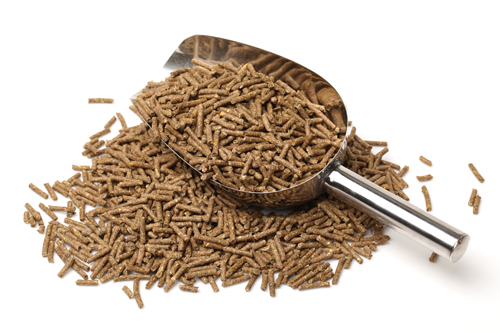Posted by EquiFeast on 20th Oct 2016
5 Nutritional Reasons Why your Conditioning Feed could be Causing Poor Behaviour
- Sugars
and Starches
These are really easy for your horse to turn into fat, but the potential side effects can cause problems.
Spooky behaviour is certainly one of those, so you need to be careful if using conditioning feeds containing even moderate levels of sugars and starches.
Remember that at certain times of the year your horse’s pasture and hay will be a naturally high sugar/starch feed, and whilst haylage is fine for some horses, others don't cope as well eating it.
The variability in tolerance to starchy foods seems to be huge – with some seemingly unaffected and others not!
- High Starch
feeds can also create behavioural problems by causing pain or discomfort in
the gut. In extreme cases, too many carbohydrates can lead to digestive issues.
Any horse feeling pain will regard itself as more vulnerable to predation, so will be on the alert and so less able to concentrate on its work.
- Too much
magnesium seems to be an amazingly common cause of difficult behaviour. Any
horse being fed a basic pasture and/or hay diet will be easily getting the
recommended levels of magnesium from those feeds. Most of that comes from the
chlorophyll.
Many feed, balancers and supplement companies add more magnesium in forms that horses have not been naturally exposed to.
The science has been clear for over 40 years that the more magnesium you feed to horses, the more builds up in the body. Recent work confirms what the neuroscientists and anaesthesiologists have known for years – excess magnesium impairs brain function by sedation. Just like horses in pain feel vulnerable so do those with foggy thinking!
- Bizarrely too
little magnesium can also raise its head occasionally. This most commonly
occurs with a spring flush of grass when potassium levels rise dramatically. It
seems that when the excess potassium is excreted, magnesium is lost by
accident. At this point, very small amounts of supplementary magnesium may help
these horses. However if you find you are feeding more and more magnesium to
get a result, you have almost certainly overdone it.
Just as with sugars different horses seem to cope well or badly with excess magnesium.
- Inadequate chelated calcium seems to be remarkably common in horses grazing both high and low calcium pastures. Chelated calcium seems to have a role in a process called “calcium signalling”. This is used all over the body but where behaviour is concerned its function in switching on and off the cells in the brain is probably the key.
How to deal with
these issues
1. Start by trying to get your horse on pasture or hay that is naturally high in fibre and low in carbohydrates. If your own an ex dairy farm this will be almost impossible! You may want to buy hay grown outside your area.
2. Avoid conditioning feeds with moderate or high levels of sugars and starches.
. Avoid conditioning feeds with added magnesium. Inevitably you will feed more of these products at some times of year than others, the potential to overdo magnesium is significant but can also only be apparent when the feed is increased.
4. Get EquiFeast to evaluate the magnesium level of your diet. We have developed a formula that allocates different weightings to the different sources of magnesium used in horse feeds. We can then help you to identify the level of added magnesium that best suits your horse (for over 30% that seems to be NO ADDED MAGNESIUM and EquiFeast NEVER add more than 1.2 grams a day to any 550kg horse).
5. Consider a chelated calcium supplement or feed balancer with chelated calcium built in.
Products to consider
EssentialCORE – comprehensive balancer support hooves, coat quality and general well-being. No added magnesium.
CoolCORE – as EssentialCORE but with added chelated calcium (Cool, Calm & Collected). Starter formulation available.
MORE Condition – high oil and fibre, low sugar and starch conditioning feed with no added magnesium.
MORE Muscle – if you are looking for topline not fat cover.
Cool, Calm & Collected – chelated calcium “brain food” supplement.
Ultimate – to support the digestive system.
- Support – EquiFeast is delighted to talk to existing and potential customers and guide them through the options. Click here for contact information.
- Warning – in this day and age one of the commonest nutritional problems in horses, dogs, cats and humans is obesity. So please only used conditioning feeds when you horse or pet really needs it.
- The references to pain related behaviour also apply to poor saddle fitting, back problems etc. etc. This article is not attempting to address those issues.
